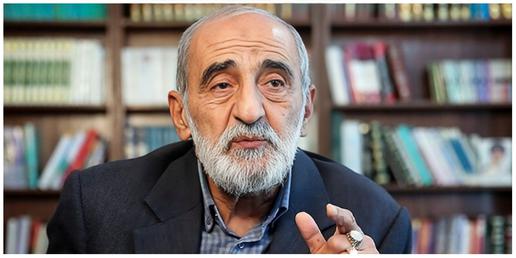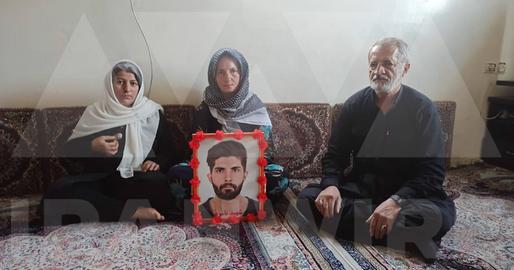An August 13 column by Hossein Shariatmadari, managing editor of the hardline Kayhan newspaper, sparked many reactions in Iranian media.
Referring to photographs showing startup female employees without the mandatory headscarf, he wrote that these platforms have acted in step with the “enemy.”
Shariatmadari, who is also the representative of Supreme Leader Khamenei at Kayhan newspaper, then argued that since these startup companies have little capital and have used the regime’ “facilities,” their management should be handed over to “qualified people” and their ownership be transferred to the regime.
Threats of Confiscation
Under the big headline “Threat to Confiscate Startups,” Sazandegi newspaper compared Shariatmadari with “extremist socialists who, early after the revolution, said that kicking out owners of factories would do no harm to the companies.”
“Such words and such threats…create a sense of insecurity in society, and such a feeling is harmful to the business environment,” the newspaper Ham Mihan said in a column on its first page. “Statements of this kind make startup companies nervous and apprehensive, create a great obstacle to society’s progress and development, and stops the engine of the country’s economy.”
The managers of these newspapers, who themselves are prominent political figures in the Islamic Republic, know well that Shariatmadari's statements can influence members of the parliament, the government and extremist figures within the government.
No Legal Basis
According to lawyer Mohammad Olyaeifard, the government can change the management of a company only if this company is totally owned by the state.
“Changing ownership, which here means the same as confiscation, has been defined in Iranian law,” Olyaeifard tells IranWire. “Article 19 of the Islamic Penal Code states that if someone commits a crime and is sentenced to at least 25 years in prison, all his assets assets should be confiscated.”
And according to Article 20 of the Islamic Penal Code, Olyaeifard continues, a company found to have committed a crime can be dissolved, depending on the severity of the crime: "This article does not apply to Iranian startups which Shariatmadari wants to confiscate because even if we say that an illegal action has been committed in these startups, that action was committed by their employees. Therefore, the assets of these companies cannot be confiscated just because their employees have violated the law.”
Olyaeifard also points out that Article 49 of the Islamic Republic’s Constitution states that the “government has the responsibility of confiscating all wealth accumulated through usury, usurpation, bribery, embezzlement, theft, gambling, misuse of endowments…and other illicit means and sources.” But it emphasizes that this measure “must be executed by the government with due care, after investigation and furnishing necessary evidence in accordance with the law of Islam.” In other words, if a person commits a crime, his assets cannot be confiscated unless it is proven that these assets have been acquired illegally.
"If the people involved in a company commit a crime that has nothing to do with financial issues — for example violating hijab laws — committing this crime does not permit the seizure and confiscation of this company’s property,” the lawyer concludes.
Confiscations Driven by Envy
In an interview last year, Hossein Marashi, secretary-general of the Executives of Construction Party and a former governor of Kerman province, cited “envy” as one of the reasons behind the confiscation of assets in the early days after the 1979 Islamic Revolution.
He cited the following case: “Mr. Asadollah Lajevardi [Tehran's prosecutor in 1980] and Mr. Irvani each had a shop in Tehran’s bazaar, next to the each other. Irvani sold shoes and Mr. Lajevardi sold headscarves. When Irvani noticed the [industrial] developments in the 1960s, he turned his shoe store into Melli Shoe Co., at a time when China, Taiwan, Korea and Thailand had no industry and no manufacturing. Then [after the revolution], his neighbor Mr. Lajevardi became the prosecutor and confiscated his properties.”
Marashi added that such confiscations damaged the Iranian economy.
Examples of the failure of the Islamic Republic in managing the businesses it took away from their original owners are many and are not limited to well-known brands such as Darugar, Azmayesh, Arj Home Appliance Company, Bella Shoe Company, Pars Electric Manufacturing Company, Melli Shoe Company, Mazandaran Textile Company and Tolypers — companies that produced high-quality household appliances, clothing, as well as hygiene and detergent products. Many of these companies’ products have become part of the memories of several generations of Iranian people.
After the 1979 revolution, all these companies were confiscated and their management was handed over to the government. In the 2000s, these companies were sold to the private sector but none survived.
Darugar, founded by Gholamreza Darugar in Isfahan in 1928, was once a well-known and popular brand in Iran. It went bankrupt in June of this year.
The Human Victims
The confiscation of factories and businesses, which ultimately led to the destruction of brands, also dealt a heavy blow to many of their owners.
"Hossein Khan Ebrahimi had built a factory called Mizan Mold in Kerman, which was so precise that it could even mold the hands of a wristwatch,” Marashi said in the interview. “The prosecutor ordered the confiscation of his assets, but that factory was worthless without Hossein Khan. Despite all efforts, the factory was finally confiscated. In less than a year, its machinery was auctioned off…and Hossein Khan died at the age of 50.”
After the revolution, the properties of many government employees were confiscated, regardless of whether they held sensitive positions or not, destroying many lives.
Ahmad Rafat, a well-known journalist whose father had been a senior government employee before the revolution, tells IranWire that the psychological impact of property confiscation is sometimes greater than its financial consequences: “My sister and I lived abroad and, for this reason, my parents sometimes lived abroad after my father's retirement. In the days of the revolution, they were outside of Iran. A few weeks after the revolution, when they wanted to return to Iran, they learned that a warrant for the arrest of my father and for the confiscation of his properties had been issued.”
He says that his mother was able to return to Iran because she was Italian. She took some belongings from their home, but none of their other properties were returned to the family. Their forced emigration and the confiscation of their assets completely ruined their life, so much so that the couple separated after 30 years of marriage.
Rafat believes that confiscation is not only a financial issue, but it is also a kind of disrespect toward the person targeted: "My father used to say that it was as if they had taken away all his memories because his memories belonged to that house.”
In the end, the confiscated businesses proved to be no panacea for the new owners who did not know how to manage them.
Now, it seems that Shariatmadari is trying to start a new round of business confiscations so that, under the pretext of hijab violations, the economic achievements of others would fall into the hands of those around him and, perhaps, the institutions controlled by Khamenei.





























comments